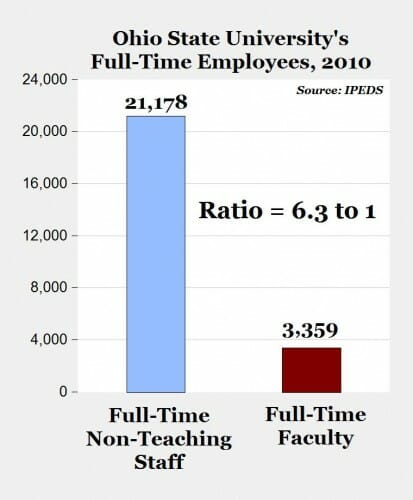One aspect of the recent debate about the Supreme Court's Citizen's United decision that really irritates me is the notion, propounded by the NY Times among others, that corporations and the individuals assembled in them do not have free speech rights because corporations are "state-created entities."
This is wildly untrue, or alternatively, if you accept the logic, then nearly every aspect of our lives is state-created. Take your pick. Basically, the argument is that because the government has set the rules for corporate incorporation, and that these incorporations require state approval, that makes corporate entities "state-created." But corporations are nothing more than a structure by which people can assemble and aggregate their capital and share ownership of an enterprise that employs that capital. If government incorporation law did not exist, individuals still would have the incentive to assemble in some sort of entity.
I don't know of anything in the corporate structure that could not be duplicated with contract terms. People point to the liability limitation as some sort of government gift to the corporate world, but that could easily be written in to every contract of, say, a partnership (certain torts are an exception I would have to think about). Vendors might choose not to accept such contracts, preferring to be able to pierce the partnership to go after individual owners to settle debts, but that choice exists today. I have many, many vendor contracts in my corporation, and nearly all of my bank loans, that require the personal guarantee of all the owners, effectively waiving the liability limitation for those transactions.
My point, though, is that corporate forms have evolved as they are because that is what the sum of investors and business people were working towards on their own, and government merely enshrined these forms into law. In fact, this basic rules-setting of the contracts playing field is one of the few arguably useful things government has done. If we allow government rules-setting over certain activities to be the test of whether it can further restrict our Constitutional rights, then nearly every aspect of our lives would be subject to such restrictions.
At its heart, this is the classic "heads I win, tails you lose" argument of statists. They claim that individuals must petition the state to register their corporation and license their business, and then use the fact of these required registrations to argue that the business is a "state-created entity" and that individuals give up their ability to exercise their rights when assembled into these entities. By the same logic, the fact that every commercial transaction is subject to license and taxation by the state would make our every transaction a "government-created exchange." Think I am exaggerating? Just look at this from our Arizona state web site:
The Arizona transaction privilege tax is commonly referred to as a sales tax; however, the tax is on the privilege of doing business in Arizona and is not a true sales tax. Although the transaction privilege tax is usually passed on to the consumer, it is actually a tax on the vendor.
Rights, like the ability of free exchange between individuals, supposedly can't be revoked, but privileges can. Thus the name. For folks who treasure individual liberty, we have already lost the battle when we allow the state this kind of language.
Anyway, I feel like I am having a failure of eloquence over this issue. Ilya Somin got me started thinking about these issues, so I will turn it over to him here.
Third, it's important to consider what is meant by "state-created entity." If the term refers only to institutions that literally would not exist absent state authorization, it does not accurately characterize many, perhaps most corporations. If the federal government passed a statute abolishing corporate status tomorrow, most actual corporations would still exist and still continue to engage in the same business or nonprofit activities. They just would do so under different and perhaps less efficient legal rules (maybe as LLCs, partnerships, or sole proprietorships). But they wouldn't all just collapse or go away. There would still be a demand for most of the products produced by corporations.
If "state-created entity" doesn't refer to the mere existence of organizations currently defined as corporations but to the particular bundle of legal rights currently attached to the corporate form, then it turns out that virtually all other organizations are state-created entities as well. Universities, schools, charities, churches, political parties, partnerships, sole proprietorships, and many other private organizations all have official definitions under state and federal law. And all have special government-created privileges and obligations that don't apply to other types of organizations.
Even individual citizens might be considered "state-created" entities under this logic. After all, the status of "citizen" is a government-created legal entitlement that carries various rights and privileges, many of which the government could alter by legislation, just as it can with those of corporations (e.g. "” the right to receive Social Security benefits, which the Supreme Court has ruled can be altered by legislation any time Congress wants). In that sense, "citizens" are no less "state-created" entities than corporations are.
By the way, in case I was not careful with my language, I offer the same proviso as does Somin:
I should clarify that in this post, as before, I'm not arguing that corporations themselves are "persons" with constitutional rights. Rather, I'm asserting that their owners and employees are such persons and that that status enables them to use corporations to exercise their constitutional rights. Similarly, partnerships, universities, schools, and sole proprietorships aren't people either. But people can use them to exercise their constitutional rights, and the government can't forbid it on the sole ground that they are using assets assets assigned to "state-created entities." This distinction was unfortunately obscured in the current post by my shorthand references to "corporations'" rights. I only used that terminology because it's cumbersome to always write something like "people exercising their constitutional rights through corporations."

